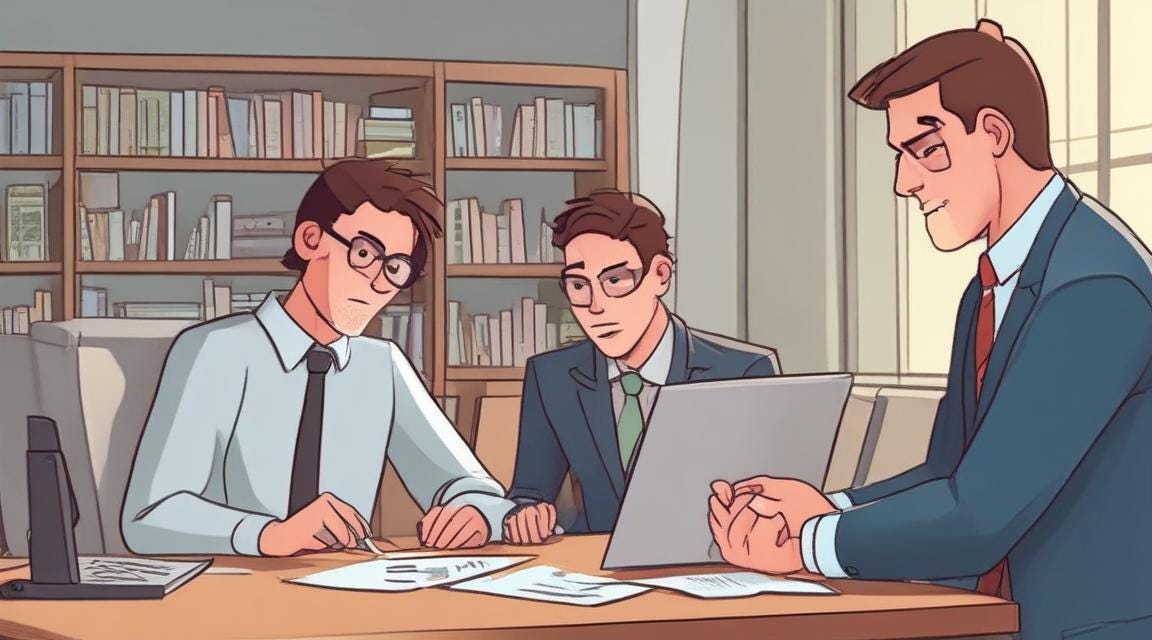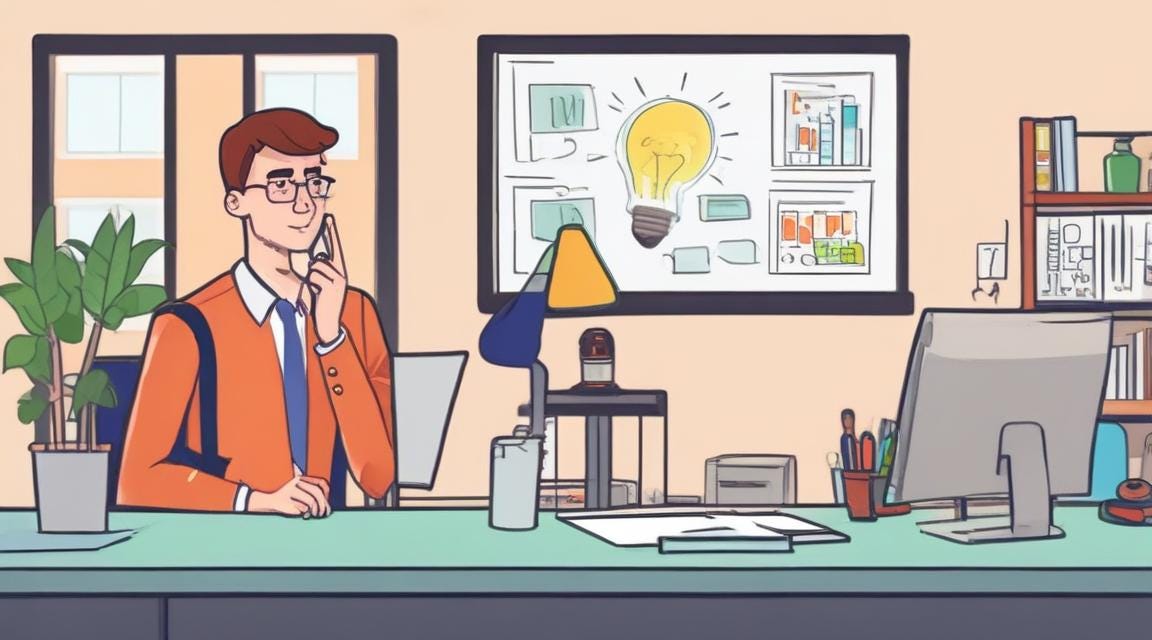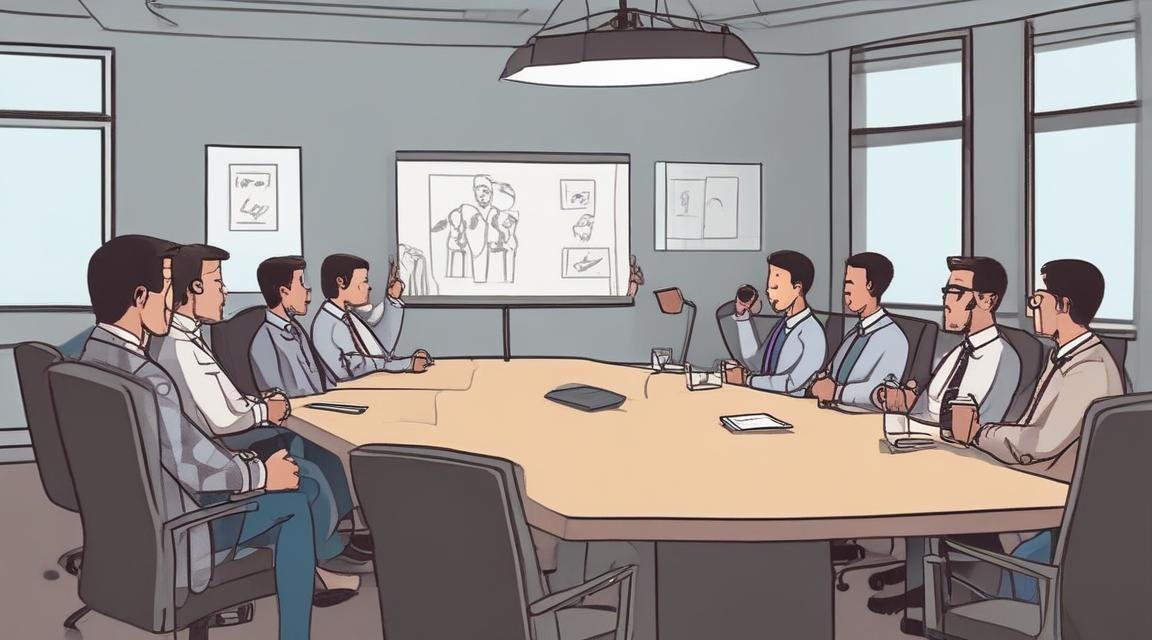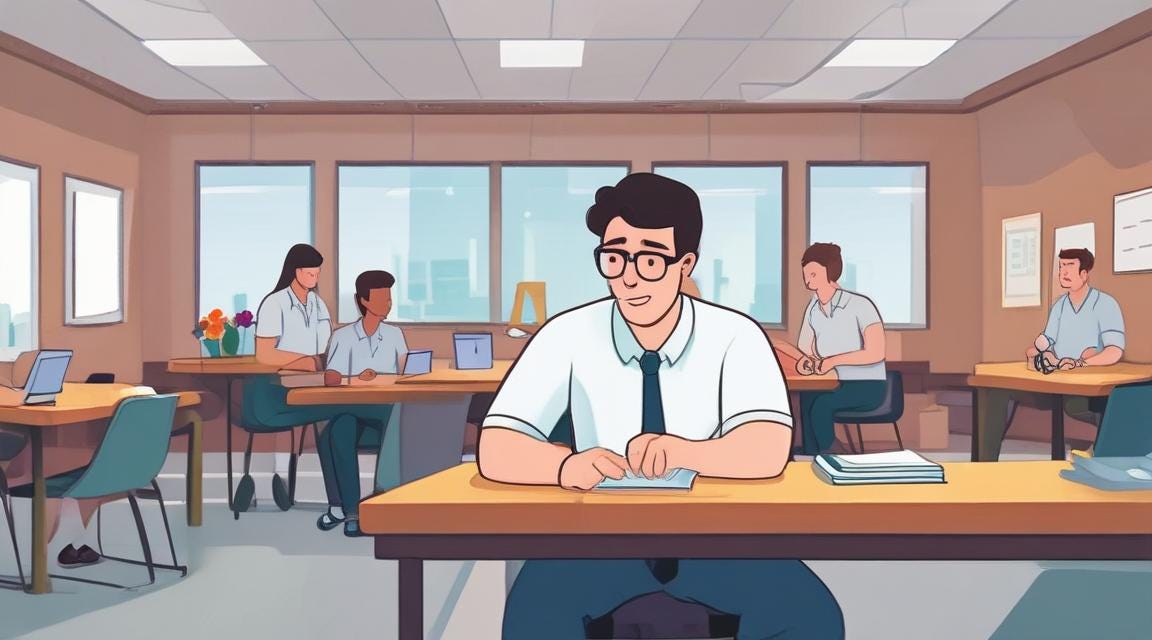Ep. 2: Lessons from My First Job: The Vision Overlooked
Navigating Innovation and Rejection in a Traditional Workplace
In this episode, I will share my journey through the ups and downs of my first job as a young marketing consultant. I was still in high school, bursting with ideas and eager to make my mark. This article shares a pivotal moment that forever changed my perception of the world.
Join me as I reflect on the invaluable lessons learned about innovation, resilience, and the importance of listening to fresh perspectives, no matter how unconventional they seem.
A bit of Context and Background
In the spring of 2008, I stepped into my first professional role, fresh-faced and brimming with the optimism that textbooks and late-night online tutorials foster. At 18, my age was both an asset and an albatross as I navigated the company's corridors, a mid-sized advertising company teetering on the precipice of change, though it didn't know it yet.
Hired as a Junior Marketing Consultant, a title that flattered and intimidated me, I was the youngest in an office where the median age hovered around thirty-five. This generational gap was palpable, not just in discussions about music or the best TV shows of the decade, but more critically, in our approach to business and innovation.
The company was respectable, profitable, and, as I would soon learn, staunchly traditional. My days were split between awe at having my own desk and the mind-numbing reality of routine tasks. But my evenings were mine to continue a passion that had started years earlier: exploring the burgeoning world of digital marketing. At night, I lived in a future where algorithms and analytics ruled, a stark contrast to the paper-laden desks and dusty desktops of my daytime world.
Several months into my job, after immersing myself in the company's operations and its cautious dance around digital strategies, I spotted an inefficiency in our ad placement process for digital campaigns. The method was clunky, time-consuming, and often resulted in missed opportunities to capitalize on fast-moving trends.
The Idea
The solution was as clear to me as the glow of my computer screen: a procedure that would benefit our clients and the company as well. Today, this is a standard practice, seen in platforms like Google Ads, but back then, it was my proposal in a brown binder labeled ambitiously "The Future of Ad Buying."
I remember rehearsing my presentation, the binder heavy with research and mock-ups of a dashboard that could make our process more efficient and competitive. The meeting was set for a Thursday afternoon when the air in the office was sleepy with the scent of microwaved lunches and the distant hum of nearing deadlines.
The conference room felt cavernous as I pitched my idea to a roundtable of furrowed brows. I spoke with the zeal of a believer, detailing how this could significantly cut down our overheads and position us as a leader in the national digital marketing space. But as I watched their expressions, it became evident that my enthusiasm was not infectious but somewhat perplexing.
The Rejection
The Director of Marketing, we’ll call him Mr. X, a man who had begun his career when the internet was just a whisper, was the first to speak. "It's a clever idea, but it's not the right time for us. These systems require trust in untested technology that, frankly, we find unreliable." The others nodded, their sentiments echoed with polite smiles and murmurs of agreement about "the proven ways" being "less risky."
I was crushed, not just by the rejection but by the patronizing tones that accompanied their "appreciative" pats on the back as they dismissed my months of research and passion as youthful folly. The binder was shelved, both literally and metaphorically, and I was told to focus on "real work."
Google Ads introduced a similar system about a year later. It revolutionized ad buying overnight. I remember reading about it and feeling a bitter mix of vindication and frustration. My idea had been validated, but it was a hollow victory.
My former company did not adapt; it didn't evolve. It remained steadfast in its traditional methods until, two years later, it was burdened by competitors who were quicker to embrace new technologies and permanently shuttered its doors.
The Lesson
The lesson from my first job was not just about the sting of rejection but also about the stifling effect of a closed mind. It taught me that innovation often looks implausible through the lens of convention and that age and experience are poor proxies for wisdom or the lack of it.
Since then, I have carried this lesson through every job, proposal, and pitch. I approach each with the understanding that listening, truly listening, to ideas—regardless of their source—is fundamental to growth and adaptation. At 18, I learned that sometimes, the youngest person in the room could see the clearest path forward.
Final Thoughts
Today, I’m an Entrepreneur leading my own company; I make it a point to cultivate an environment where ideas are heard and explored, regardless of where they come from. We may not consistently implement every suggestion, but we never dismiss them without considering their potential to disrupt, enhance, and propel us forward.
My former employer could have been at the forefront of a digital revolution. Instead, it became a cautionary tale of what happens when tradition is valued over innovation.
As for me, I became someone who believes in the power of "what if?" and in the potential of the next generation of thinkers who, every day, imagine new ways to redefine the possible.





